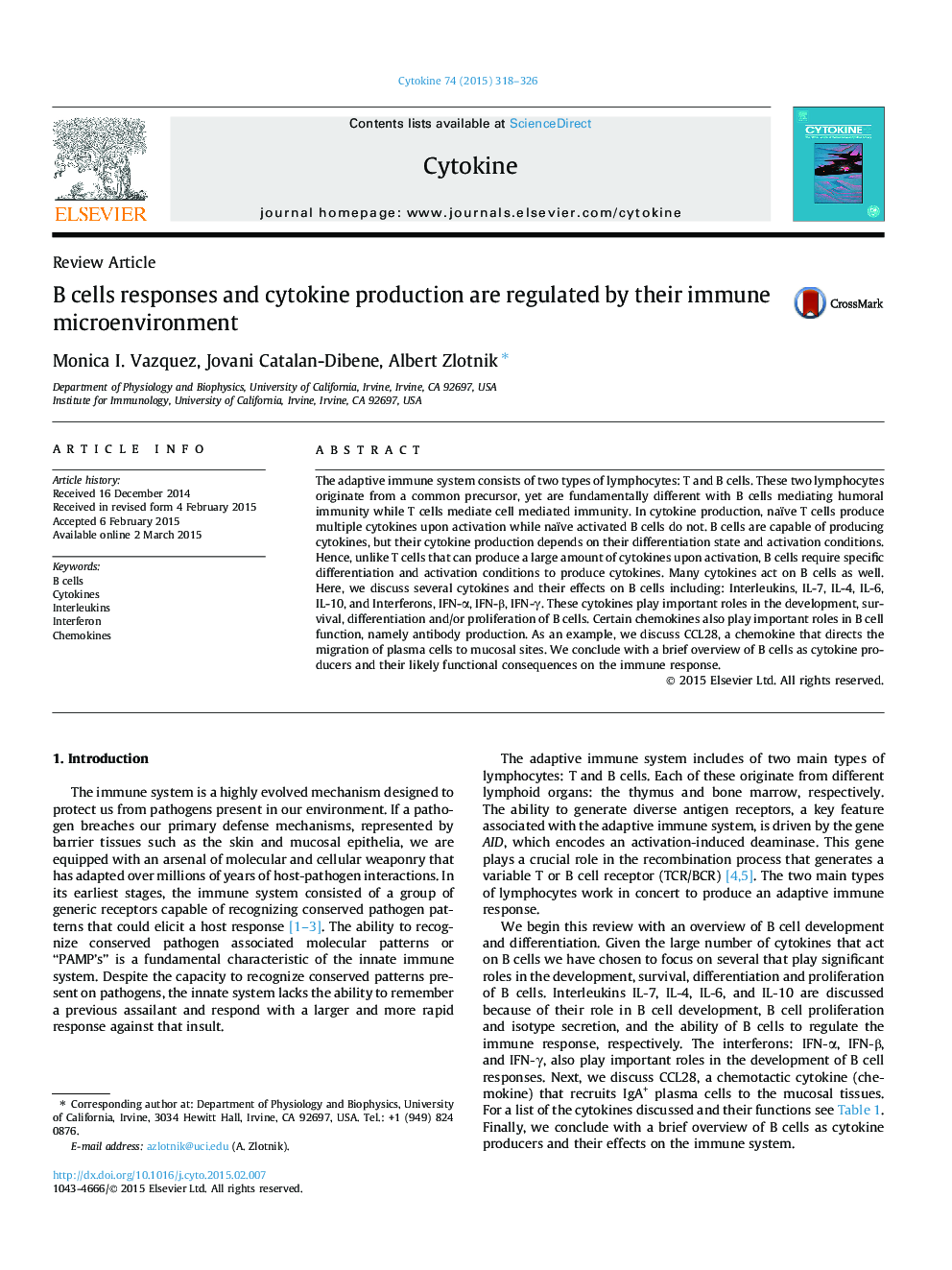| Article ID | Journal | Published Year | Pages | File Type |
|---|---|---|---|---|
| 5896983 | Cytokine | 2015 | 9 Pages |
â¢Cytokines drive the differentiation of B cells.â¢Differentiation and immune microenvironment determine B cell cytokine production.â¢Cytokines produced by B cells can modulate the adaptive immune response.
The adaptive immune system consists of two types of lymphocytes: T and B cells. These two lymphocytes originate from a common precursor, yet are fundamentally different with B cells mediating humoral immunity while T cells mediate cell mediated immunity. In cytokine production, naïve T cells produce multiple cytokines upon activation while naïve activated B cells do not. B cells are capable of producing cytokines, but their cytokine production depends on their differentiation state and activation conditions. Hence, unlike T cells that can produce a large amount of cytokines upon activation, B cells require specific differentiation and activation conditions to produce cytokines. Many cytokines act on B cells as well. Here, we discuss several cytokines and their effects on B cells including: Interleukins, IL-7, IL-4, IL-6, IL-10, and Interferons, IFN-α, IFN-β, IFN-γ. These cytokines play important roles in the development, survival, differentiation and/or proliferation of B cells. Certain chemokines also play important roles in B cell function, namely antibody production. As an example, we discuss CCL28, a chemokine that directs the migration of plasma cells to mucosal sites. We conclude with a brief overview of B cells as cytokine producers and their likely functional consequences on the immune response.
